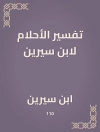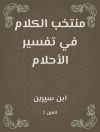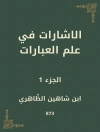
Available open access digitally under CC-BY-NC-ND licence.
How can we nurture more liveable worlds in today’s neoliberal academia and beyond?
This collection revisits the notion of reflexivity from a science and technology studies (STS) perspective, asking how researchers are affected by, and affect, the worlds they engage with. Using experimental formats that challenge academic convention, the volume acknowledges the ‘dark sides’ of reflexivity, while insisting that it is nonetheless worthwhile striving for it.
This volume is essential for anyone interested in creative, playful and always incomplete attempts to refresh reflexivity in research, and in developing more liveable worlds for ourselves and those our research engages with.
Jadual kandungan
Chapter 1. Introduction. Sarah Davies et al
Chapter 2. Navigating : A user’s guide to ‘Revisiting Reflexivity. Andrea Shikowitz et al
Chapter 3. Automatic reply: Another university is possible. Reuben Message et al
Chapter 4. Is My Work Reflexive Enough? Anne Beaulieu
Chapter 5. Learning to Affect and to be Affected: Articulating Self and World in Empirical Research. Michael Penkler
Chapter 6. Becoming Instrument. Joshua Evans
Chapter 7. care embodied: speaking from a nonbinary, crip, menstrual body. marissa micah schut
Chapter 8. Movement, rest, bodyminds. Ekat Osipova
Chapter 9. Epistemic erasure in participatory research. Dimas D. Laksmana
Chapter 10. Making more liveable worlds beyond academia: reflexivity in collaborative research practice. Camilo Castillo
Chapter 11. Reflecting on Discomfort: Fieldwork with Vaccine-Hesitant Participants During the Covid-19 Pandemic. Barbara Morsello
Chapter 12. Outrageously open: Co-inhabiting and expanding knowledge-making spaces through somatic, arts based methods. Ewa Łączkowska
Chapter 13. An Invitation to who?. Maria Vlachou
Chapter 14. The Third Space Walk: An approach to understanding analogue-digital urban spaces. Mirjana Mitrović
Chapter 15. From model organism to companion species: a laboratory guide to feminist reflexivity in experimental biology research. Lisa Weasel
Chapter 16. An Invitation to Help redecorate a Corner of Discursive Space. Erika Szymanski
Chapter 17. Contemplations: A Perspective on Reflexivity out of the “Brackish Waters” of Artistic Research. Ruth Anderwald & Leonhard Grond
Chapter 18. Reflexivity in artistic research and visual anthropology: Response by Sanderien Verstappen to “Contemplations: A perspective on reflexivity out of the ‘brackish waters’ of artistic research” by Ruth Anderwald and Leonhard Grond. Sanderien Verstappen
Chapter 19. On institutions and institutionalising. Andrea Schikowitz et al.
Chapter 20. Projected reflexivity: learnings from two reflexive research projects from-within, with-within and for-within. Karen Kastenhofer and Doris Allhutter
Chapter 21. Reflexivity in Co-Evaluation: from challenges to principles of participatory research evaluation. Katja Mayer
Chapter 22. Reflexivity, Avoid it Like the Plague?. Annie Patrick
Chapter 23. Situating Reflexivity: Coming Home to STS: Liminality of Research Positions as Mode of Reflexivity within the Academic Field of STS. Nikolaus & Sarah Schönbauer
Chapter 24. A better place for STS? The Art Studio as Heterotopia. Elaine Goldberg
Chapter 25. Why Bogotá?: The Local, the Global and the Interesting, Reflexively or STS – Here and There. Malcolm Ashmore & Olga Restrepo Forero
Chapter 26. Snapshots of Reflexivity. Sarah R Davies, Elaine Goldberg, Andrea Schikowitz, and Fredy Mora-Gámez
Chapter 27. Rethinking Aesthetics, Ontologising Reflexivity. Mike Michael & Alex Wilkie
Chapter 28. Dear Steve: on the contribution of reflexivity to general human well being and livability in the world beyond research. Steve Woolgar
Chapter 29. When Sally met Steve: Virtual Reflexivity. Sally Wyatt
Chapter 30. Whose worlds are more liveable now? Abandoning the alienated ‘blah’. Fredy Mora-Gámez, Elaine Goldberg, Sarah R Davies, and Andrea Schikowitz
Mengenai Pengarang
Sarah R. Davies is Professor of Technosciences, Materiality and Digital Cultures at the Department of Science and Technology Studies, University of Austria. Her work explores how science and society are co-produced: she has written about hackers and hackerspaces, how scientists experience the conditions of contemporary academia and science communication formats such as festivals and museums.











